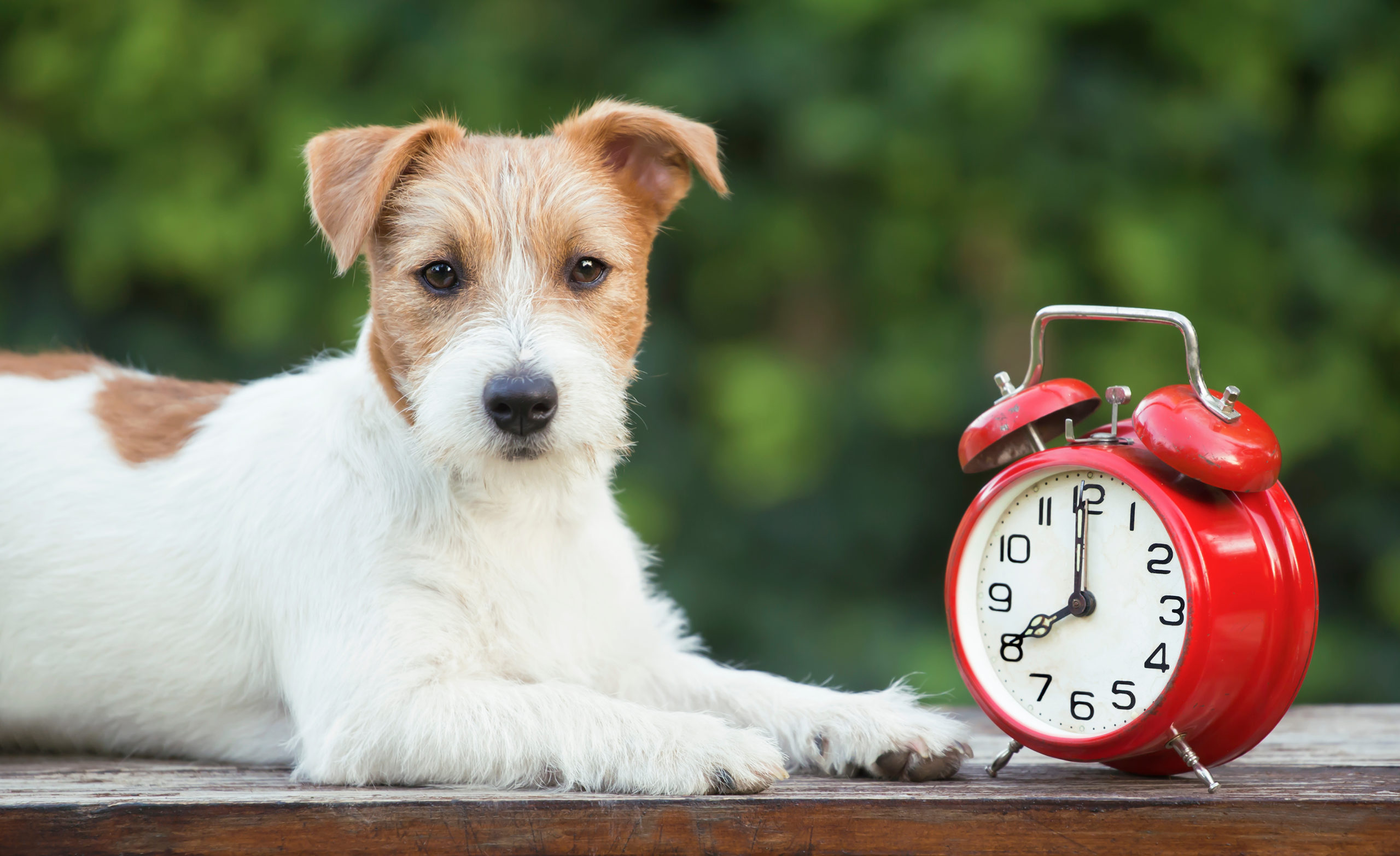Springing forward- do clock changes affect our dogs?
Blog , +1
March 19, 2020

Written by: Zoe Russell, BSc (Hons)
Nutrition Officer, Skinner’s Pet Foods
Come the last Sunday in March, all our clocks will spring forwards one hour into British Summer Time (BST). This means more daylight in the evenings and less in the mornings, giving us more time after work to enjoy with our faithful friends. But what impact, if any, does this have on our canine companions?
Natural “body clock”
Dogs, like many other animals have a natural circadian rhythm or “body clock” which affects their sleep-wake cycle. This is controlled by a circadian pacemaker in a small part of the brain called the hypothalamus, which controls the daily rhythmicity of heart rate, heat dissipation, respiration, blood pressure, rest and activity (1). The way in which this happens is the circadian pacemaker receives signals from the eyes which detect external light changes and will notify the brain via a specific pathway. This then affects the physiological and behavioural reactions of the body in response to these external changes (2).
In truth, there is very little available research on seasonal clock changes and the effect it has on dogs. What we do know, is that dogs are naturally conditioned to wake up when the sun rises, meaning after the clocks change our dogs may surface a little earlier than usual! Being very attuned to the environment, dogs may also become more active during the longer days, providing more opportunities for longer walks and playtime in the garden.
Being one hour earlier, bedtime may seem a little disrupted for us and as a result, it is often assumed that our dogs will behave like naughty children and refuse to adjust to a new bedtime. Although this may be the case for some un-cooperative pooches, research suggests dogs have much more brief sleep and wake cycles than humans, making them very adaptable to changes in their evening routine (3).
Daily routine
Try to avoid any drastic changes in your daily routine- after all, the clocks have only changed by one hour! In addition, the change will happen around 1am on Sunday morning, meaning changes will occur on a day when most routines are very relaxed. It may take a few days, but your dog will adapt to the daylight hours and may even benefit from the lighter evenings and longer walks. However, some dogs are creatures of habit and may have preferred toilet times or require routine medication, especially in the cases of diabetes or epilepsy. Therefore, some owners might have to be more mindful of these time changes than other owners and adjust accordingly.
Watch that clock!
Make sure you keep an eye on the time, as some clocks will automatically update if they are linked to a smart device, but other ones may not. Therefore, make sure you know which ones to change- after all, you don’t want to be late for work on Monday morning!
References
- Refinetti, R. and Piccione, G. (2003). Daily Rhythmicity of Body Temperature in the Dog. Journal of Veterinary Medical Science, 65(8), pp.935–937.
- Piccione, G., Grasso, F. and Giudice, E. (2005). Circadian rhythm in the cardiovascular system of domestic animals. Research in Veterinary Science, 79(2), pp.155–160.
- Bódizs, R., Kis, A., Gácsi, M. and Topál, J. (2020). Sleep in the dog: comparative, behavioral and translational relevance. Current Opinion in Behavioral Sciences, 33, pp.25–33.


